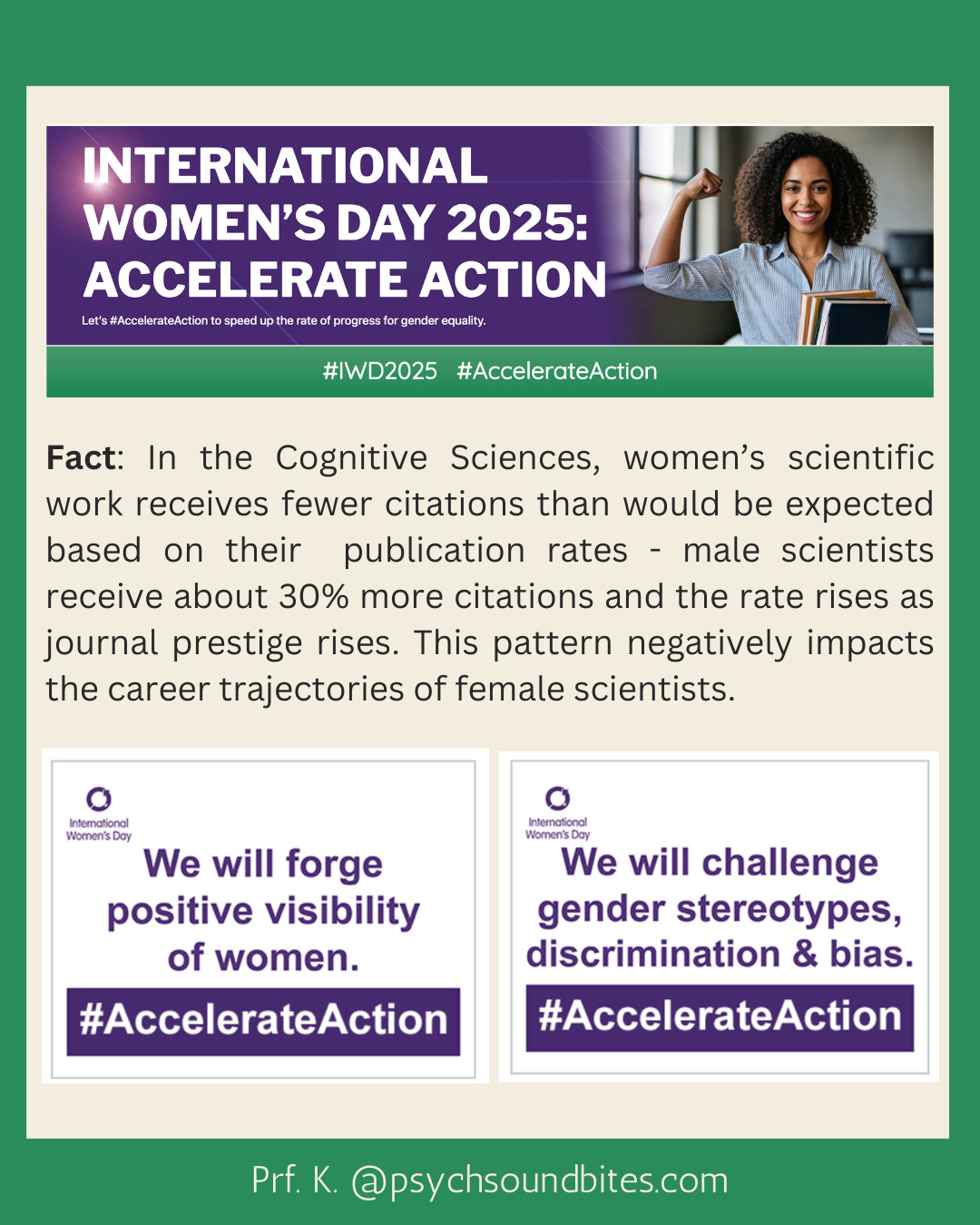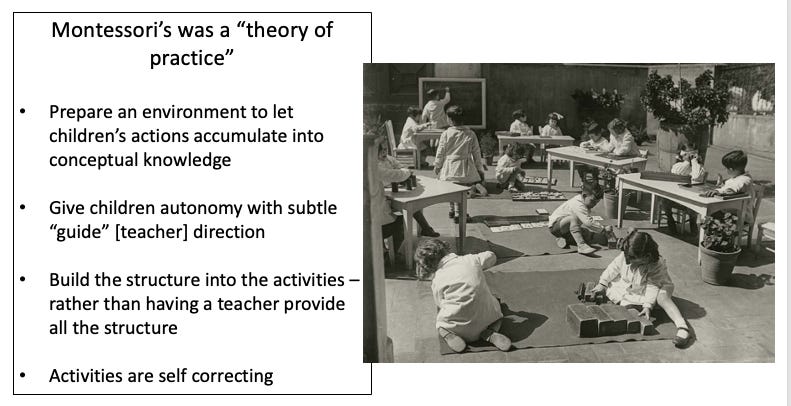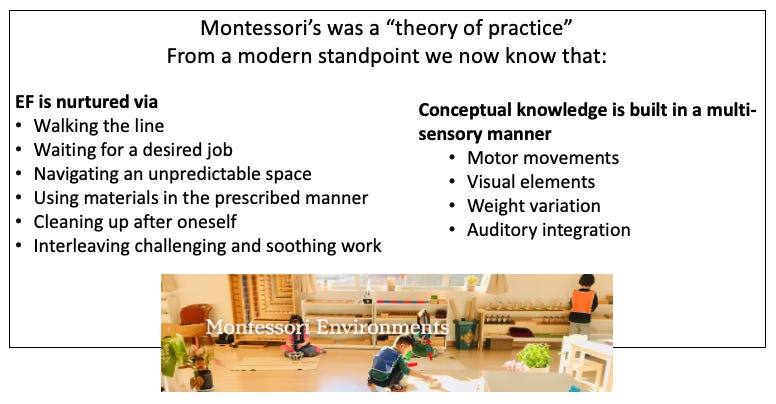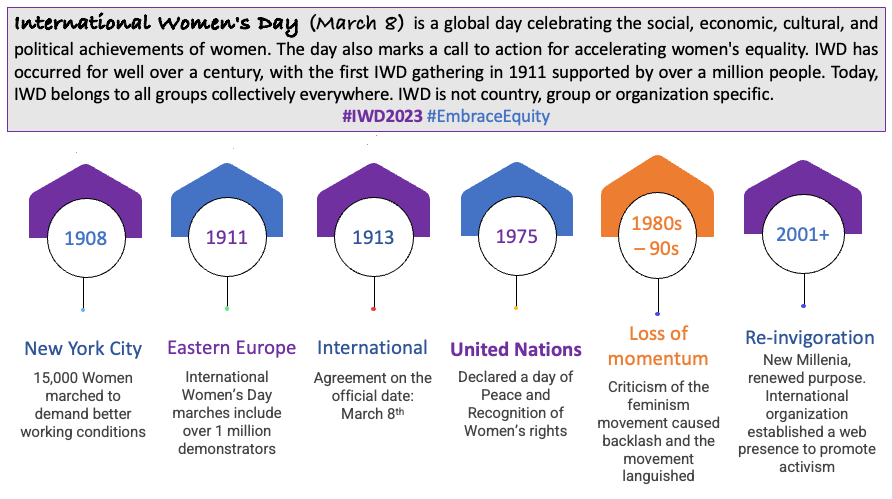Do you do anything for International Women's Day?
My class activity today was brilliant. And super simple.
Spring is in the air here in my neck of the woods and that means we are trudging along thinking more and more about spring break, we are fighting off — only somewhat successfully — the slew of viruses that have been circulating the lecture halls for months, and it also means International Women’s Day.
I started recognizing this day in classes about 5 years ago and each year it makes an impact. Last night, as I realized I wasn’t going to be in good shape for teaching today — that virus caught up to me! — I was bummed at the prospect of missing the #IWC25 buzz. But then I had a moment of inspiration. I created a quick little on-line discussion forum for one of my classes and it’s been a joy today to read students’ remarks!
Using the LMS system, I invited students to find a female Cognitive Scientist — the class is an upper division Cognitive Psychology class called “Memory and Mind” - and to put together and share a brief bio.
Aside: I’ve heard from students in year’s past that they dislike these kinds of forums, but I have found that when used sparing (or perhaps judiciously) they can be brilliant.
Today’s discussion has been brilliant. Students are sharing bios, reading and remarking on each others posts and are expressing what appears to be genuine surprise and interest!
I say this over and over again in my newsletters here on Substack, but Psychology has a representation problem! Far too often more time than is necessary is spent on historical figures who are usually white and male. Text books are entrenched in 20th century paradigms — especially Developmental Science and Cognitive Science books. In Developmental Science - Cognition especially — it’s all too easy to spend weeks on Piaget at the expense of the fantastic work in cognitive development that has followed from testing the limits of his copious works. Much of this work has been done by brilliant female Cognitive Scientists.
I hesitate to start listing the the brilliant scholars I am thinking about right now for fear of forgetting someone important, but to stay in keeping with my point about representation, I am going to list some of my favorite scholars anyways, knowing full well that this is an incomplete list: Qi Wang, Adele Diamond, Alison Gopnik, Susan Carey, Susan Gelman, Linda Smith, Katherine Nelson, Robyn Fivush, Elaine Reese, Catherine Haden, Rebecca Saxe, Marjorie Rhodes, Lera Boroditsky, Patricia Greenfield, Patricia Bauer … and … I may come back in with edits to add more later.
About today’s assignment: Some of the scholars my students selected are known to me — big names who come up in all my classes like Elizabeth Loftus and Alison Gopnik — but my students have surprised me too by finding interesting and accomplished scholars I am not aware of.
I pride myself on being widely and deeply read, and am utterly delighted at the new-to-me names that are now on my radar. How wonderful is that?
It is such a simple assignment, too. And, I expect, one that will have a lasting impact. There’s so much to love about it. Students can’t get it wrong — it’s low stakes in terms of their course grades. But it’s high stakes in terms of the lesson they are taking away: so much can be gained by doing a quick search and discovering something new from it! All in the name of seeking out ways to raise the visibility of women in cognitive science.
Today’s assignment was new, but I’ve done more too!
While today’s activity is what inspired me to write this evening, I’ve done some other pretty neat things too. Like last year I made a poster “picturing” notable Psych-Sci scholars, and it now hangs on my office door for all to see everyday as they pass by.
Other things I’ve done are spend a class period discussing Maria Montessori, noting her career trajectory, curricular goals, and philosophy of practice, and even mentioning her correspondence with Piaget.
In other classes I’ve doubled up themes by showing how gender bias plays out in generative-AI wherein a search for female cognitive scientists often yields the inclusion of men. And I’ve even pointed out mistakes in the Intro Psych text book I use, regarding the first person to document case notes about Autism (my friend Dr. Inna Kanevsky tipped me off on this one!):
After the discussion pictured in my class slide screen-shots pictured above and below here about Dr. Grunya Sukhareva, I got in contact with the text book editors to ask them to update it, and they agreed.
Activism doesn’t have to be a grand gesture. Sometimes all it takes is a google-search, a discussion, and an email to plant a seed. Often I find that students just aren’t aware of how much implicit sexism and benign neglect in correcting the historical record still exists in the scientific world. When I invite them into conversations about it, they listen.
Once they become aware, they usually want to do something about it too. So I make a point of offering some small, doable steps, as captured in a lecture slide below:
International Women’s Day is March 8th, Saturday.
When I return to work on Monday I plan to continue the conversation in my Cognitive Psych class about the on-line forum results. And in my Intro Psych class, I will deliver the lecture on Monday that I had planed for today, to keep sharing with students things they can do to in the spirit of #accelerateaction by raising visibility of women and the barriers we still face in the workplace. When our small steps accumulate, we can create change. And who doesn’t need a little message of hope like that right now? I know I do!
Do you do anything special in the name of International Women’s Day? If you do, please share!












